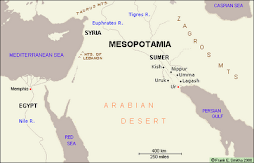Tuesday, 13 April 2010
Vocabulario Units 7 and 8
Unit 7
1. Marco Polo-Thanks to him was unveiled there in India, China and Japan.
2. Technical advances-That is why the Europeans need to seek new trade routes to the east
3. Portulan Charts- Were developed. They showed the coastline and any obstacles at sea. Straight lines showed the shortest distance between different ports.
4. Compass-Navigational instruments, such as the compass, the astrolabe and the quadrant, were developed.
5. astrolabe-Navigational instruments, such as the compass, the astrolabe and the quadrant, were developed.
6. Quadrant-Navigational instruments, such as the compass, the astrolabe and the quadrant, were developed.
7. Caravels Ships, such as caravels, were improved and, consequently, could travel longer distances.
8. Prince Henry the Navigator- The Portuguese monarchs and Prince Henry the Navigator organised various expeditions.
9. Bartolomeu Dias- In 1488, Bartolomeu Dias rounded the Cape of Good Hope at the southern tip of Africa, opening the sea route to the India Ocean.
10. Vasco de Gama- In 1498 Vasco de Gama reached India.
11. Christopher Columbus- Was a Genoese sailor. He was convinced he could reach the eastern coast of Asia by crossing the Atlantic Ocean. Columbus thought that the world was round, although some people still believed that it was flat.
12. Ferdinand Magallan- In 1519, an expedition of five boats and 250 sailors left Seville, captained by Ferdinand Magellan with his second-in-command, Juan Sebastian Elcano.
13. Juan Sebastian Elcano-In 1519, an expedition of five boats and 250 sailors left Seville, captained by Ferdinand Magellan with his second-in-command, Juan Sebastian Elcano.
14. Overseas empires- Portugal and Spain created great overseas empires. To prevent problems between the two countries, unexplored regions were divided between them in the Treaty of Tordesillas, in 1494.
15. Treaty of Tordesillas-Portugal and Spain created great overseas empires. To prevent problems between the two countries, unexplored regions were divided between them in the Treaty of Tordesillas, in 1494.
16. Indigenous population of America- One of the most important consequences of the discoveries was the contact between different peoples. Knowledge was exchanged. However, diseases introduced by the Europeans caused a dramatic decline in the indigenous population of America.
Unit 8
1. The plague- In the 14th century, Europe suffered a crisis as a result of poor harvests, wars and illness. Many people died. The most terrible event was the plague, which broke out in Europe, in 1348.
2. The Black Death-In the 14th century, Europe suffered a crisis as a result of poor harvests, wars and illness. Many people died. The most terrible event was the plague, which broke out in Europe, in 1348. This epidemic, also called the Black Death, devastated the whole continent. More than a quarter of the population died.
3. Bourgueoisie-The bourgeoisie also became very influential. It was made up of rich and powerful merchant and banking families. Some of them married into noble families to raise their social status.
4. bureaucracy- The monarchs created a bureaucracy and a professional and centralised administration, which depended directly on the monarch.
5. army-The monarchs built up the army. Troops were paid by the monarch and followed his orders.
6. diplomatic- They created a diplomatic system to maintain relations with other countries.
7. autoritarian monarchies-In this way, the authoritarian monarchies were born. The court, or king's residence, did not travel as it had done in the Middle Ages. It settled in one city and governed from there.
8. Ivan the Great-In Russia. Ivan the Great unified the country. He annexed new territories and made himself czar, or emperor, of Russia.
9. Henry VIII- Increased royal power in the early sixteenth century.
10. Charles VII-In France after the hundred Years War, French monarchs from Charles VII to Francis I uified the country and consolidated their power.
11. Francis I-In France after the hundred Years War, French monarchs from Charles VII to Francis I uified the country and consolidated their power.
12. Catholic Monarchs-In Spain the Catholic Monarchs unified all the Iberian kingdoms, except Portugal.
13. Holy brotherhood-The Catholic Monarchs created the Holy Brotherhood, a judicial police force, to fight against bandits and the abuses of the nobility.
14. Royal Council-They also reorganised justice and strengthened the Royal Council, the highest judicial body.
15. Corregidores-They appointed corregidores, or chief magistrates, to establish royal authority in the towns.
16. Treasury- They strengthened the royal Treasuty and took privileges away from the nobles.
17. Tribunal of the Inquisition-In 1478, with the Pope's permission, they founded the Tribunal of the Inquisition to prosecute heretics.
18. conversos- The conversos, or converts, were persecuted by the Inquisition.
19. Mudejares-In 1512, a similar decree established the conversion or expulsion of Mudejars, or Spanish Muslims.
20. Moriscos- Muslims who converted to Christianity were called Moriscos.
Suscribirse a:
Enviar comentarios (Atom)






0 Response to " "
Publicar un comentario